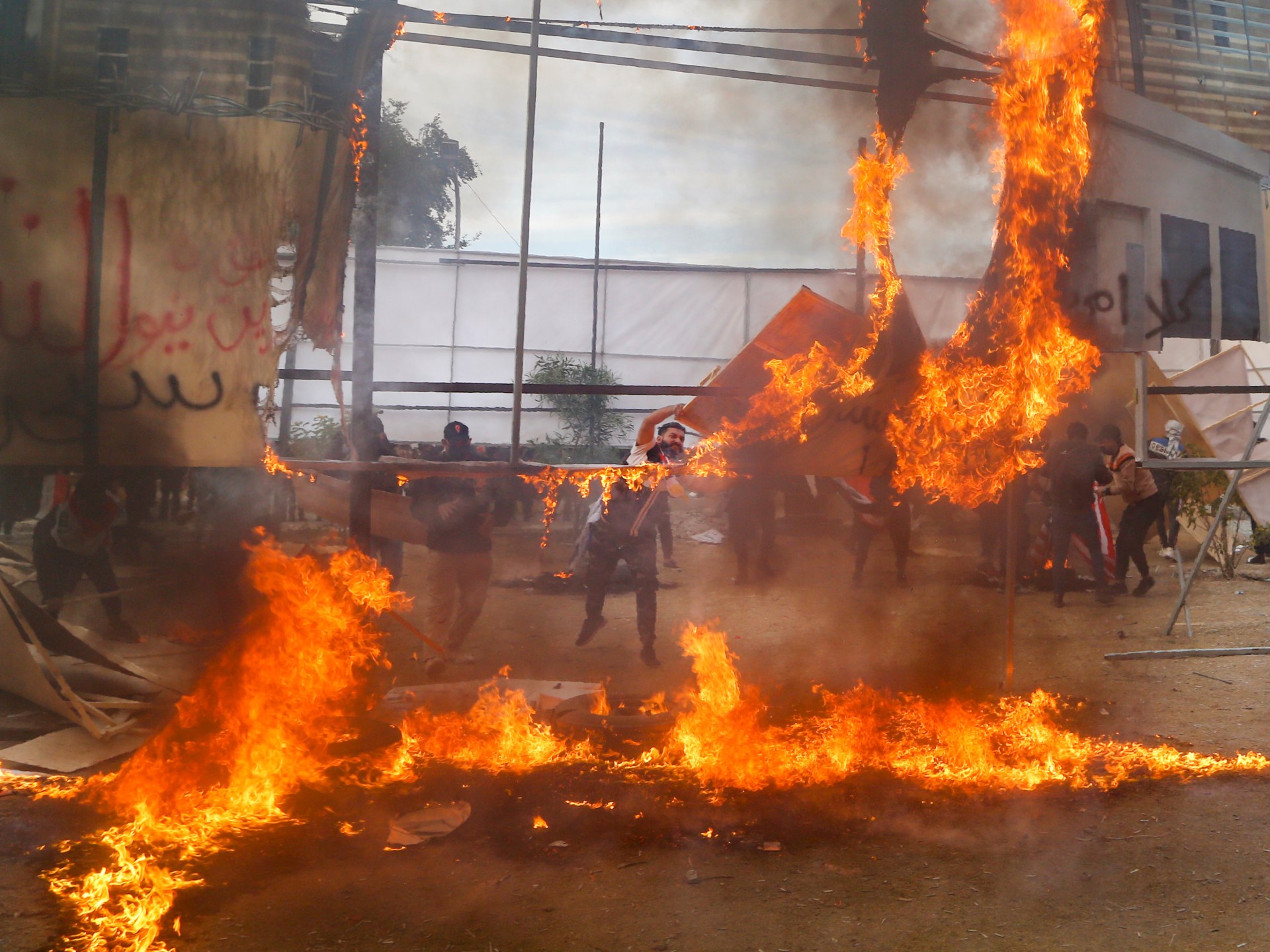Iran’s network of Middle Eastern allies has suffered severe blows over the past two years. President Bashar al-Assad’s regime in Syria fell apart. Hezbollah faced mounting pressure to disarm in Lebanon after being forced to lay down its weapons under a ceasefire negotiated by the United States. After US forces massively bombarded infrastructure and civilian areas in Yemen, the Houthis were forced to stop preventing maritime traffic through the Red Sea. Ahmed al-Rahawi, their prime minister, and several other ministers were killed on Thursday in an Israeli attack.
Iran’s once-formidable deterrent has dramatically decreased. And now it appears that its influence in Iraq is waning by the day. The Popular Mobilisation Forces (PMF), a group of predominately Shia paramilitary units, are under increasing pressure from the US to rein in Iranian allies.
Although it may be difficult and risky to integrate the PMF into the Iraqi army, it could if it were to be done. However, it could help to advance the country’s sovereignty and state.
US pressure’s effectiveness
The PMF’s brief history  exemplifies Iraq’s wider setbacks of trying to balance pressures from the US and Iran with its wider situation.
In response to the country’s security vacuum, which was directly at the root of the country’s rise of ISIL (ISIS) in 2014, it established its paramilitary organizations. After the US invasion, the Iraqi army was disbanded in 2003, and the reconstituted force lacked the morale and readiness to defend the nation.
The PMF succeeded in halting ISIL’s advance where the regular army had failed, but the Islamic Revolutionary Guard Corps’ (IRGC) co-opted many of its members as regional influence tools.
The PMF still has a significant influence in Iraq today. It includes hardline groups that are unwaveringly loyal to Iran and groups that genuinely seek integration with the Iraqi military.
Mohammed al-Sudani, the prime minister of Iraq, is being under increasing US pressure to overthrow his own ruling coalition, which has strong support from the PMF.
The proposed American strategy, which would allow compliant units to join the regular army and remove militia leaders from positions of authority, is nothing less than a complete overhaul of Iraq’s security structure. Some Iraqi lawmakers have pushed the PMF to become a military force for the first time in the process by passing legislation that would permanently enshrine it.
The PMF’s integration bill, which was introduced in March, aims to make it a permanent, independent military body with a budget, a command structure, and a military academy. Additionally, it would give the PMF commander a ministerial rank, institutionalizing what Washington perceives as Iranian influence within the Iraqi government.
The bill was temporarily withdrawn from parliament thanks to US pressure. Marco Rubio, the US’s secretary of state, made a clear warning that a comprehensive analysis of US-Iraqi relations, possibly involving sanctions, would result from passing such legislation. Given Washington’s recent 35 percent tariffs on Iraq, this threat had weight.
The processing of electronic transactions by Iraqi state-owned Al-Rafidain Bank caused a disruption in the payment of PMF fighters’ salaries in June, which was brought on by US pressure.
US lawmakers have been calling on Al-Rafidain Bank to be sanctioned for a 2022 corruption scandal, in which $2.5 billion in state funds were allegedly stolen from it because of allegations that people close to the PMF were involved.
The unavoidable reckoning
No longer is it about whether the PMF should remain in its current form in Baghdad. In Washington, that query has been resolved. Al-Sudani is under a lot of pressure to stop the Iraqi state’s parallel army from aligning with Iran.
Iraq’s course of action is clear. Under constant American pressure, Iran’s political order, which has long been dominated by its allies and endured systemic corruption, isundergoing fundamental change. Washington appears to be determined to not leave the outcome in the hands of Tehran’s final significant regional stronghold.
Because of his lack of other options, Al-Sudani will cling to American pressure. The regular army will include all factions who are willing to distance themselves from Tehran. Refusing to participate will be isolated, destroyed, or their funding will be severed for those who refuse. Not when, but when will determine this outcome.
There are a lot of risks. Iranian-affiliated paramilitary organizations may violently repress dissolution. Despite its weakened regional standing, Tehran can still stoke chaos across Iraqi territory.
Iraq may yet be hurled back into civil conflict as a result of the ghosts of 2006 returning. However, if Iraqi institutions are able to withstand the storm, stronger sovereignty would result in a state that has been sorely lacking since the US invasion of 2003.
Source: Aljazeera

Leave a Reply